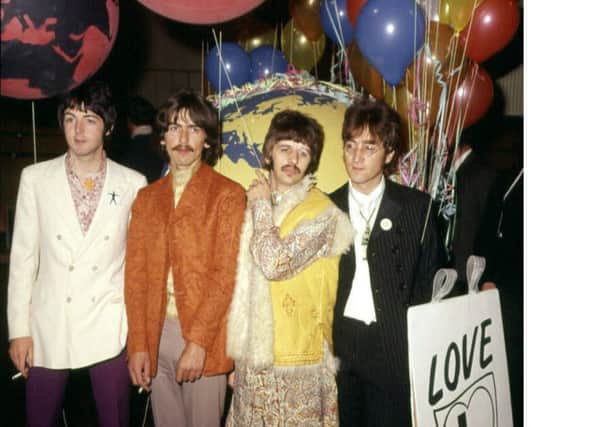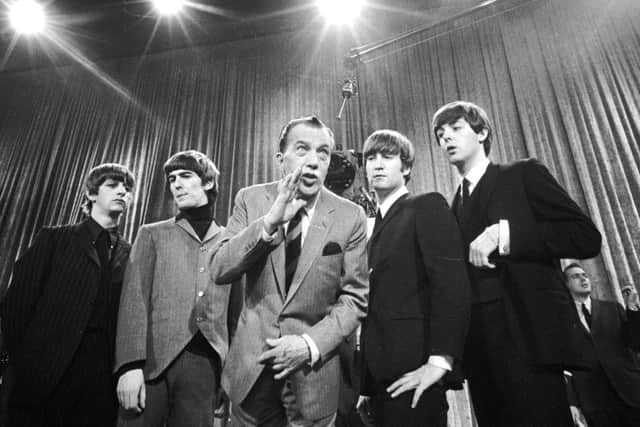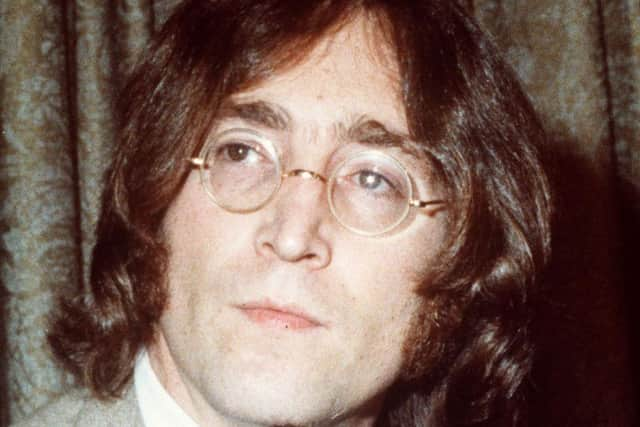How John Lennon's Jesus outburst changed course of pop history


“CHRISTIANITY will go. It will vanish and shrink. I needn’t argue about that. I’m right and I’ll be proved right. We’re more popular than Jesus now. I don’t know which will go first, rock ‘n’ roll or Christianity. Jesus was all right but his disciples were thick and ordinary. It’s them twisting it that ruins it for me.”
So said John Lennon of The Beatles in an article that appeared in the London Evening Standard 50 years ago tomorrow. The comments, which were published as part of a series by journalist Maureen Cleave titled How Does a Beatle Live? generated little response in Britain.
Advertisement
Hide AdAdvertisement
Hide AdBut when the quotes were reprinted in US teen magazine Datebook they provoked a ferocious response, particularly in the southern states of America. Apologies from Beatles manager Brian Epstein and Lennon himself did little to quell the anger and one radio station organised a “Beatle Boycott”, urging people to take their Beatles records and memorabilia to designated places to torch them.


Lennon’s comments were ill-considered in as much as he clearly hadn’t realised what a reaction he would get from the hundreds of thousands of fans in The Beatles’ biggest marketplace, just as they were set to begin another tour there.
But the mid-1960s in the United States was a time of great volatility and danger. John F Kennedy was assassinated in 1963 and Malcolm X two years later. In 1968, Martin Luther King and Bobby Kennedy would suffer the same fate.
Understandably, there was fear within The Beatles’ camp. It’s possible that Bob Dylan’s withdrawal from Civil Rights campaigning was due to the fear that he could be the target of an assassin as well and The Beatles may well have had similar thoughts.
Advertisement
Hide AdAdvertisement
Hide AdBut this would prove to be a key moment in the arc of pop history. It changed The Beatles’ strategy for good.


They were disillusioned with touring because it had become a difficult artistic experience, whether it was travelling or the screaming fans which meant they couldn’t hear themselves play. The backlash to Lennon’s comments helped make up their minds that it was time to stop touring and become a studio act.
Rather than embarking on another tour they spent several months in the studio making Sergeant Pepper’s Lonely Hearts Club Band which is rightly seen as a watershed moment in music history.
The grandiose scale of the record, both in terms of the time they spent making it and the ambition it showed, marked the point at which pop music came of age, going from being single and Top 40 orientated to a more significant and substantial art form.
Advertisement
Hide AdAdvertisement
Hide AdIf The Beatles had continued to tour extensively into 1967 and 1968 they wouldn’t have created the body of work that followed in the late Sixties – Abbey Road, the White Album and everything that followed and convinced people that pop music mattered.


It turns out that Lennon was almost certainly right about the secularisation of western society. Figures like Dylan and The Beatles played a part in people looking less to religious gods and more to the gods of the music world.
So would such comments trigger the same response today? Well, you only have to look at the number of times the Republican candidates hoping to run for the White House are asked about their Christian commitment to know that there would still be some anger.
And supposing an artist said they were bigger than Mohammed? The Charlie Hebdo attacks prove that there is still a tinderbox situation in some circumstances and global artists could light the blue touchpaper just as Lennon did half a century ago.
Dr Simon Warner is a lecturer in Popular Music Studies at Leeds University and author of Text and Drugs and Rock ‘n’ Roll: The Beats and Rock Culture.